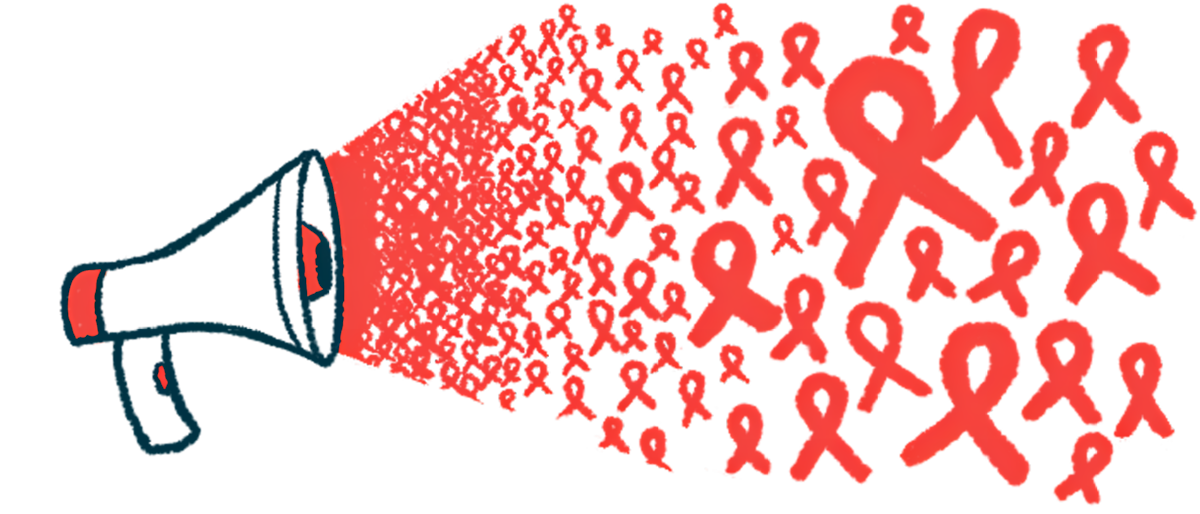Grand Slam winner, Argenx partner on campaign raising MG awareness
Tennis legend Monica Seles has lived with myasthenia gravis for 5 years
Written by |

Nine-time tennis Grand Slam champion Monica Seles, who has myasthenia gravis (MG), is teaming up with pharmaceutical company Argenx on a campaign aimed at raising awareness — and increasing understanding — of the rare neuromuscular disease.
“I am excited to partner with the Argenx team — to inspire others living with MG to rally against this disease, pursue their goals, and live a fulfilling life,” Seles said in a company press release, noting that she experienced feelings of isolation during her own MG journey.
“We’re all in this together,” Seles said.
The tennis great received an MG diagnosis five years ago, but only started speaking about it publicly ahead of this year’s U.S. Open, which begins Aug. 18 in Queens, New York.
Now, Seles is also supporting Argenx’s Go for Greater campaign, which seeks to improve quality of life for people with MG by fostering community connections and offering resources.
“A greater everyday with MG means something different to everyone. Whether you want to walk your dog, cook your favorite meal or brush your hair, you set your own goals for greater,” the campaign’s webpage states. “With the right tools and support, you can aim for greater, from long-term goals to everyday tasks.”
MG is caused by self-reactive antibodies that target proteins involved in the communication between nerve and muscle cells. These autoimmune attacks lead to symptoms of fatigue and muscle weakness, which can prevent people with MG from completing everyday life activities.
Because MG symptoms are nonspecific, diagnosis can be challenging. According to Argenx, increasing awareness and knowledge about the disease may be one way to help people recognize MG signs and begin treatment earlier.
Seles supporting Argenx’s Go for Greater with MG campaign
Seles, who retired from tennis in 2008, recently announced her MG diagnosis.
“My MG journey over the past [five] years has not been an easy one. I felt isolated and defeated as many of the activities I enjoyed were no longer physically possible for me,” Seles said.
Now, she added: “I’ve since realized that by sharing my story, I can raise awareness of this disease, empower patients to advocate for themselves and help them connect with the MG community for support.”
Besides the partnership with Seles, Argenx is hoping to enhance MG awareness at a global scale by being a premier sponsor of this year’s U.S. Open tennis championship.
“At Argenx, we are committed to supporting the MG community by fostering understanding and connection,” said Karen Massey, the company’s chief operating officer. “We applaud Monica for sharing her personal story and are excited to collaborate with her to amplify the voices of MG patients and caregivers.”
“Together, we hope to shine a light of understanding and support for those affected by MG,” Massey added.
My MG journey over the past [five] years has not been an easy one. … I’ve since realized that by sharing my story, I can raise awareness of this disease, empower patients to advocate for themselves and help them connect with the MG community for support.
Argenx is the developer and marketer of Vyvgart (efgartigimod alfa-fcab) and Vyvgart Hytrulo (efgartigimod alfa and hyaluronidase-qvfc), two therapies for certain types of MG. In the U.S., these medications are approved to treat generalized MG in people who are positive for antibodies targeting the acetylcholine receptor (AChR), the most common type of MG-causing antibody.
The company is sponsoring clinical trials testing efgartigimod formulations in people with other types of MG.
The Phase 3 ADAPT-SERON study (NCT06298552) involves people with generalized MG who don’t have anti-AChR antibodies, those with less common antibody types, and individuals who don’t test positive for any disease-causing antibodies. Another Phase 3 study, ADAPT-OCULUS (NCT06558279), is enrolling individuals with ocular MG, a form of the disease in which symptoms of muscle weakness and fatigue are restricted to the muscles controlling eye and eyelid movements.




Leave a comment
Fill in the required fields to post. Your email address will not be published.